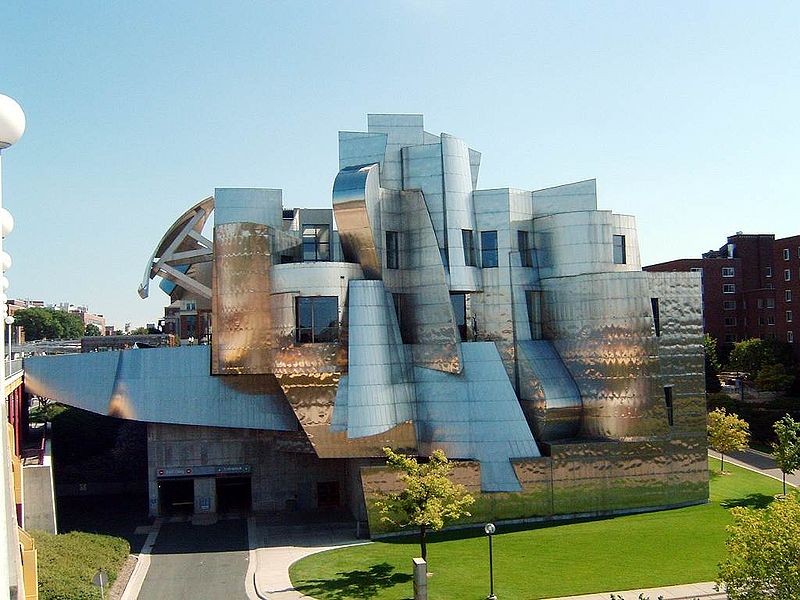The Frederick R. Weisman Art Museum is an art museum located on the University of Minnesota campus in Minneapolis. A teaching museum for the university since 1934, the museum is named for Frederick R. Weisman, and was designed by the renowned architect Frank Gehry. Often called a "modern art museum," the 20,000+ image collection has large collections of Marsden Hartley, Alfred Maurer, Charles Biederman, Native American Mimbres pottery, and Korean furniture.
Building

The museum's current building, designed by renowned architect Frank Gehry, was completed in 1993. The stainless steel skin was fabricated and installed by the A. Zahner Company, a frequent collaborator with Gehry's office.
It is one of the major landmarks on campus, situated on a bluff overlooking the Mississippi River at the east end of the Washington Avenue Bridge. The building presents two faces, depending on which side it is viewed from. From the campus side, it presents a brick facade that blends with the existing brick and sandstone buildings. On the opposite side, the museum is a playground of curving and angular brushed steel sheets. This side is an abstraction of a waterfall and a fish.
Frederick R. Weisman

Frederick R. Weisman was a Minneapolis native who became well known as an art collector in Los Angeles, and died in 1994. There is another Frederick R. Weisman Museum of Art on the campus of Pepperdine University in Malibu, California. Additionally, there is the Frederick R. Weisman Art Foundation, the Los Angeles estate designed to serve as a showcase for his personal collection of 20th-century art. When he opened the art collection at his Los Angeles estate to the public, he wanted to share the experience of living with artâ€" rather than the usual, more formal protocol of seeing art in a gallery or museum. The Weisman Foundation estate, located in the Holmby Hills area of Los Angeles, is a two-story Mediterranean Revival house designed in the late 1920s by Los Angeles architect Gordon B. Kaufmann. The Weisman home exhibits the fine craftsmanship characteristic of the period, including custom decorative treatments on the walls and ceilings. Today the Foundation estate, annex, and surrounding gardens is made accessible to the public by appointment only on guided tours.
References
External links

- Official website

Posting Komentar